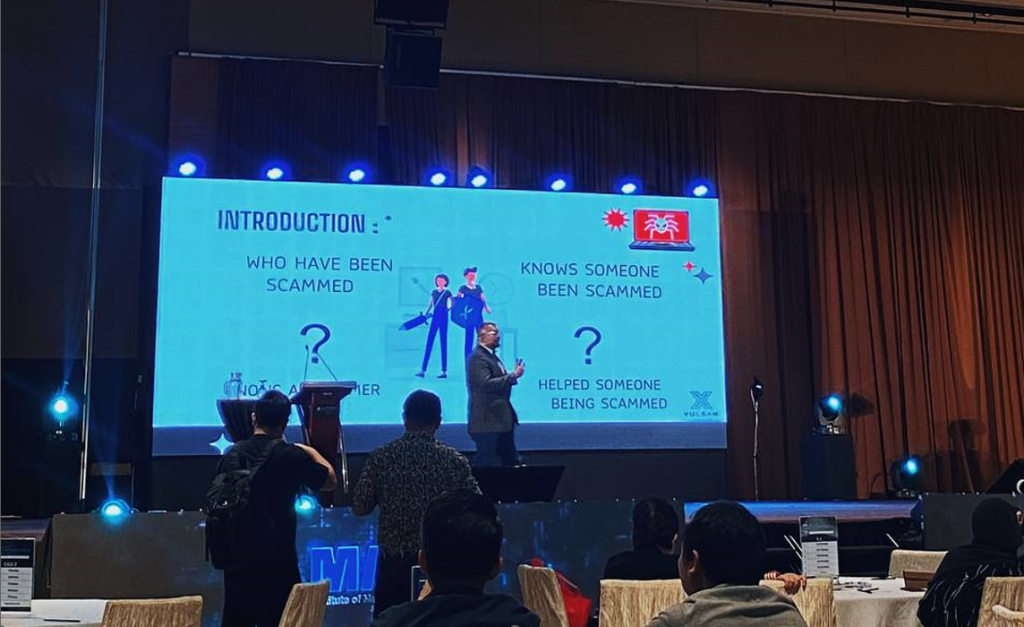Introducing
Anti Scam Training
Anti-scam training is a crucial component of cybersecurity awareness programs aimed at educating individuals and organizations about common scams and fraud tactics. This training equips participants with the knowledge and skills necessary to identify and avoid falling victim to various types of scams, such as phishing, social engineering, and fraudulent schemes.
The training typically covers the following areas:

Understanding Scam
Participants learn about different types of scams prevalent in today’s digital landscape, including email phishing, phone scams, identity theft, romance scams, lottery or inheritance scams, and business email compromise.
Recognizing Red Flags
Participants are educated on the warning signs and indicators that often accompany scam attempts. This includes suspicious email or website addresses, grammatical errors or typos in messages, urgent or overly enticing requests for personal information or financial transactions, unsolicited phone calls asking for sensitive data, and unexpected prize or money offers.
Phishing Awareness
Training focuses on teaching individuals how to identify phishing emails and websites. Participants learn to scrutinize email senders, check for signs of manipulation or impersonation, avoid clicking on suspicious links or attachments, and verify the legitimacy of websites before sharing sensitive information.
Social Engineering Awareness
Participants understand the techniques used by scammers to exploit human vulnerabilities. They learn to recognize manipulation tactics, such as authority impersonation, urgency, flattery, or emotional manipulation, and develop strategies to verify requests and independently authenticate individuals or organizations before sharing information or complying with requests.
Secure Online Behavior
Training emphasizes the importance of maintaining strong passwords, enabling multi-factor authentication, keeping software and devices updated, using secure networks, and exercising caution when sharing personal or financial information online.
Reporting Scams
Participants are educated on the importance of reporting scams and fraudulent activities to the appropriate authorities, such as local law enforcement, regulatory agencies, or cybersecurity organizations. They learn how to document relevant information and preserve evidence to aid in investigations.
Ongoing Awareness and Vigilance
Anti-scam training emphasizes the need for continued vigilance and staying updated on emerging scam techniques. Participants are encouraged to remain cautious, skeptical, and informed, and to regularly refresh their knowledge through ongoing training and awareness initiatives.
By providing comprehensive anti-scam training, organizations can empower individuals to recognize and avoid scams, protect their personal and financial information, and contribute to a safer digital environment.

